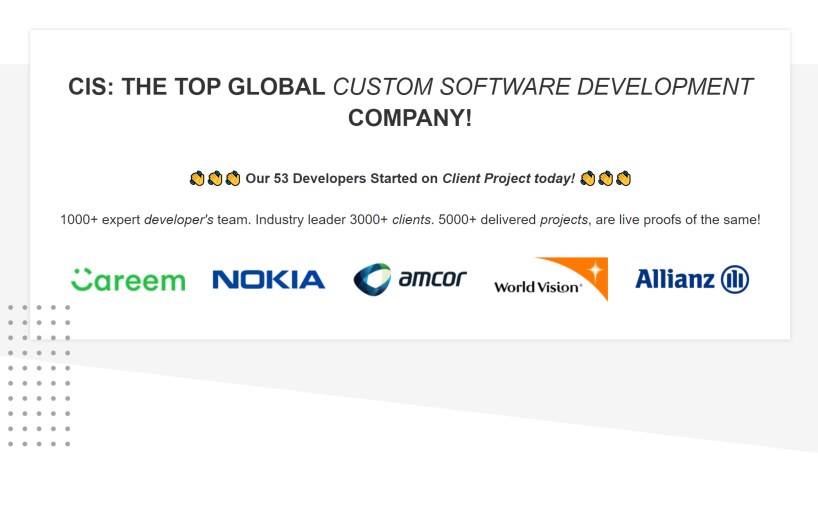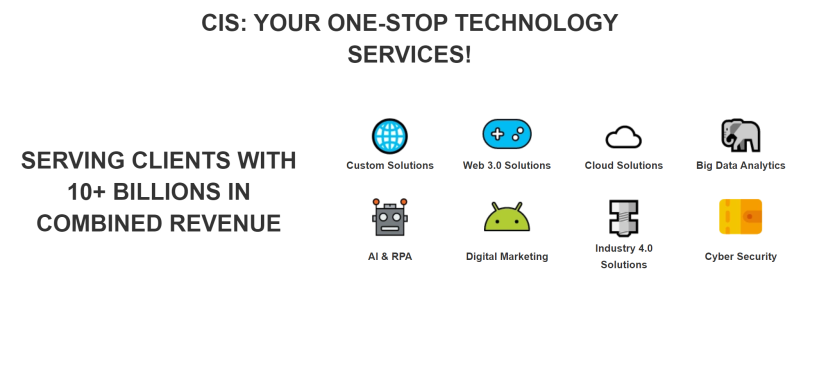Maximizing ROI: The Cost and Benefits of Adopting Workday Erp for Your Business
- Workday ERP - Detailed Analysis by Enterprise Solutions Experts



Why Mid-size Companies and Enterprises needs Workday ERP:
Workday ERP is an enterprise resource planning (ERP) system specifically designed for mid-size companies and enterprises. It helps organizations streamline their processes, automate manual tasks, and improve visibility into their operations. Workday ERP provides a comprehensive suite of financial management tools that help businesses better manage their finances, including accounts payable/receivable, budgeting and forecasting capabilities. Additionally, it offers powerful analytics capabilities to provide real-time insights into the business's performance. By leveraging the cloud-based platform, businesses can access critical data from anywhere at any time with secure authentication. This allows them to quickly respond to changing market conditions and customer demands while reducing IT costs associated with managing on-premises systems.
Benefits of using Workday ERP in Mid-size companies and Enterprises:
1. Increased Efficiency:
Workday ERP helps to streamline processes, reduce manual labor and automate tasks, resulting in improved operational efficiency across the organization.
2. Improved Visibility:
With real-time data access and reporting capabilities, companies can gain better visibility into their business operations and performance metrics. This allows them to identify areas of improvement or opportunities for growth more quickly than ever before.
3. Lower Costs:
By automating certain processes and reducing manual labor costs associated with traditional ERP systems, companies can save money on both upfront implementation costs as well as ongoing maintenance fees.
4. Reduced Risk:
With its robust security features, Workday ERP helps protect sensitive data from unauthorized access while also helping to ensure compliance with industry regulations such as GDPR or HIPAA requirements.
5. Flexible Deployment Options:
Companies have the option to deploy Workday ERP either on premise or in a cloud environment depending on their needs and preferences - allowing them to maximize scalability without sacrificing control over their system's architecture or configuration optionsDetailed Features of Workday ERP for Mid-size companies and Enterprises:
1. Core Human Capital Management (HCM):
Workday HCM offers comprehensive HR management capabilities, including employee onboarding and offboarding, talent acquisition and performance management, compensation planning and administration, workforce analytics, succession planning and more.
2. Financial Management:
This includes corporate financials such as general ledger accounting; accounts payable processing; budgeting; forecasting; cash flow analysis; cost allocation/management accounting; project costing/accounting for capital projects; compliance with tax regulations and reporting requirements such as Sarbanes-Oxley Act of 2002 (SOX); audit trail maintenance to ensure data integrity among other features.
3. Supply Chain Management:
This feature provides visibility into the entire supply chain process from order placement to product delivery while allowing users to manage vendors more efficiently by tracking orders in real time, managing inventory levels across multiple locations, monitoring supplier performance against contractual terms etc.
4. Business Intelligence & Analytics:
With this feature companies can gain insights about their operations through advanced analytics tools that enable them to make informed decisions based on data-driven insights rather than gut instinct or intuition alone. It also helps organizations identify trends in customer behavior or market conditions which can be used for strategic decision making purposes.
5. Project Portfolio Management:
This module allows companies to track progress on projects by providing visibility into resources needed along with costs associated with each phase of the project lifecycle from initiation through completion thus enabling organizations to better manage budgets while ensuring successful completion of tasks within specified timelinesWho are the Users of Workday ERP:
Workday ERP is used by a wide range of customers, including large and mid-sized companies from various industries such as financial services, healthcare, manufacturing, retail, hospitality, technology and more. Some notable customers include Adobe Systems Inc., The Coca-Cola Company, Dell Technologies Inc., KPMG International Cooperative and Microsoft Corporation.
How to ensure Data Security and Compliance with Workday ERP:
1. Implement a comprehensive security policy:
Establish a comprehensive security policy that outlines the procedures and processes for ensuring data privacy and compliance with Workday ERP. This should include access control, authentication, authorization, encryption of sensitive data, logging of user activities and enforcement of password policies.
2. Utilize role-based access controls:
Leverage role-based access control (RBAC) to ensure only authorized users have appropriate levels of access to the system and its data. RBAC ensures that users can only see or modify information relevant to their roles within the organization.
3. Monitor user activity:
Monitor user activity on Workday ERP using audit trails to detect any suspicious behavior or unauthorized changes in real time. Track who is accessing what resources when and if any unusual patterns emerge then take action accordingly.
4 Ensure secure communication channels:
Use encrypted communication protocols such as SSL/TLS whenever possible when transferring confidential information over public networks like the internet or private networks like intranets between different locations or departments in your organization..
5 Deploy multi-factor authentication (MFA):
MFA adds an extra layer of security by requiring additional credentials beyond just username and password when authenticating users into Workday ERP systems which helps protect against unauthorized access attempts from hackers or malicious actors attempting to gain entry into your system via stolen credentialsHow Workday ERP can increase organization Productivity, Agility, and Profitability:
Workday ERP can increase organization productivity, agility, and profitability by streamlining processes and eliminating manual tasks. It automates many of the mundane tasks associated with running a business, such as payroll processing, accounts payable/receivable management, budgeting, forecasting and reporting. This automation frees up time for employees to focus on more productive activities that drive revenue or improve customer service. Additionally, Workday ERP provides real-time visibility into financial data which enables organizations to make informed decisions quickly in order to maximize profits. Finally, its cloud-based architecture allows businesses to scale their operations rapidly when needed without having to invest heavily in IT infrastructure upgrades.
How to Measure KPIs and increase Benefits of implementing Workday ERP in Mid-size companies and Enterprises:
1. Establish baseline KPIs:
Before implementing Workday ERP, it is important to establish a set of baseline KPIs that measure the current performance and effectiveness of the organization's processes. These should include metrics such as employee satisfaction, customer service scores, operational efficiency, cost savings, and compliance with regulations.
2. Assess impact of implementation:
Once the new system has been implemented, track changes in key performance indicators over time to assess its overall impact on operations. This will help identify areas where improvements can be made or where additional resources are needed for optimal results.
3. Monitor process adoption:
It is also important to monitor how well employees are adopting the new system and using it effectively during their day-to-day tasks. Look at usage statistics from Workday ERP and compare them against pre-implementation levels to ensure that all stakeholders are taking advantage of its features and benefits.
4. Measure financial benefits:
Finally, calculate any financial gains associated with implementing Workday ERP in mid-size companies and enterprises by comparing actual costs versus projected ones before implementation began (including both one-time setup fees as well as ongoing maintenance expenses). This will provide an accurate picture of how much money was saved by making this changeover happen quickly and efficientlyHow Workday ERP can increase Employee Morale in your organization:
Workday ERP can increase organization employee morale by providing employees with more access to their personal data, such as vacation and sick days. It can also provide managers with real-time insights into how their teams are performing, so they can make better decisions about staffing levels and rewards. Additionally, Workday ERP allows for streamlined processes that save time and reduce paperwork, which in turn reduces stress levels among employees. Finally, the system enables organizations to quickly respond to changes in the market or customer needs which creates a feeling of security amongst employees knowing that the company is staying ahead of the competition.
How Workday ERP is Better than its Competitors:
Workday ERP is a cloud-based enterprise resource planning (ERP) system designed to help organizations better manage their financials, HR, and supply chain operations. Compared to its competitors, Workday offers a comprehensive suite of features and functionality that are tailored specifically for the needs of mid-sized businesses. This includes advanced reporting capabilities, automated processes for payroll and accounts payable/receivable management, integrated analytics tools, mobile app access for employees and managers alike, as well as built-in security measures. Additionally, Workday's intuitive user interface makes it easy to set up and use without needing extensive IT support or specialized training.
Cost to Develop & Implemention of Workday ERP:
The cost of developing and deploying Workday ERP will depend on the size, scope, and complexity of the project. Generally speaking, an implementation could range anywhere from $50,000 to over a million dollars depending on the number of users and modules required. Additionally, ongoing maintenance costs for software licenses must also be taken into consideration.
Why outsourcing implementation services for Workday ERP is better for Mid-size companies and Enterprises:
Outsourcing implementation services for Workday ERP can be beneficial for mid-size companies and enterprises because it allows them to gain access to experienced professionals who are well-versed in the system. These experts will have a deep understanding of how best to configure the system so that it meets the company's specific needs, which ensures that the transition from existing systems is smooth and efficient. Additionally, since outsourcing typically involves an upfront fee rather than paying salaries or benefits packages, this can also result in cost savings compared to hiring internal staff. Furthermore, by leveraging external resources during implementation, mid-size companies and enterprises can focus their attention on other areas of their business while leaving the technical aspects of implementing Workday ERP up to qualified specialists.


